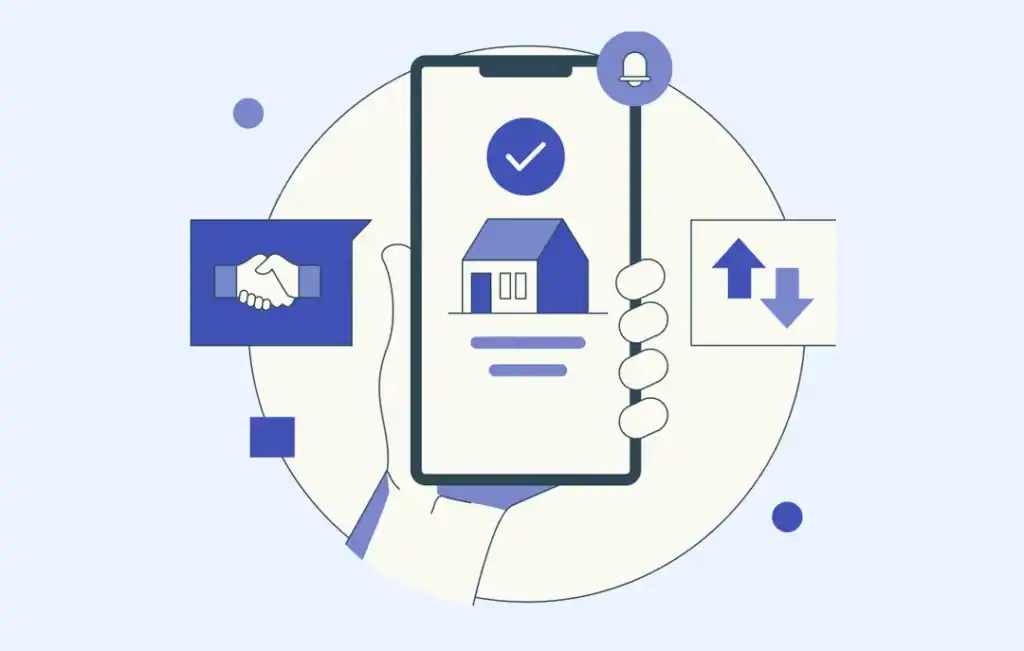The real estate industry has long been famous for its complexity, bureaucracy, and paper-heavy processes. One of the central hubs of real estate activity is the Multiple Listing Service (MLS), a database used by real estate brokers to share information about properties for sale.
As technology evolves, MLS platforms are beginning to undergo a digital transformation. Among the most promising innovations is the integration of blockchain-based smart contracts.
These self-executing contracts have the potential to revolutionize the operation of MLS systems, increasing transparency, efficiency, and trust in real estate transactions.
What Are Smart Contracts?
Smart contracts are digital contracts embedded in a blockchain that automatically execute when predetermined conditions are met. Unlike traditional contracts that require manual processing and third-party involvement, smart contracts are autonomous, tamper-proof, and enforceable by code. These contracts are built primarily on platforms like Ethereum and can manage various transaction aspects, from payments to legal obligations.
The Role of MLS Platforms in Real Estate
MLS platforms serve as centralized databases that allow real estate professionals to share listings, collaborate on sales, and access up-to-date information about property availability. They are essential tools for brokers and agents, but are often limited by outdated infrastructure and a lack of interoperability. Common issues with traditional MLS platforms include:
-
Data inconsistency across multiple platforms
-
Lack of transparency in property history and transaction status
-
High dependency on intermediaries
-
Limited automation in contract handling and property management
Integrating smart contracts into MLS platforms could help resolve many of these challenges.
Benefits of Smart Contract Integration in MLS
Enhanced Transparency and Trust
One of the most significant advantages of using smart contracts in MLS platforms is increased transparency. With blockchain, each transaction is recorded immutably and can be audited by any party involved. This provides a clear, tamper-proof ledger of all property-related actions, such as ownership history, price changes, and transaction progress.
For buyers and sellers, this transparency reduces the chances of fraud and misinformation. It also helps real estate agents build trust with clients, as all parties have access to the same, unalterable data.
Streamlined Transactions
Traditional real estate deals involve a web of stakeholders—agents, buyers, sellers, lenders, escrow services, and legal teams. Coordinating these parties often leads to delays, errors, and increased costs. Smart contracts automate many of these processes by executing terms instantly once conditions are met. For example:
-
When a buyer transfers funds, the smart contract can automatically initiate the transfer of the property title.
-
Conditional clauses, like inspection approvals or financing contingencies, can be programmed into the contract.
This automation reduces the need for back-and-forth communications and manual verifications, making transactions faster and more efficient.
Reduced Costs
By cutting out intermediaries such as escrow agents and title companies, smart contracts can significantly reduce transaction costs. The automation of administrative processes like document verification, compliance checks, and payment handling minimizes the need for manual labor, further lowering operational expenses.
Improved Data Consistency and Interoperability
Smart contracts, when combined with blockchain-enabled MLS platforms, can standardize property data across various systems. This ensures consistent, up-to-date information regardless of the platform or geographic location. It also opens the door to interoperable MLS systems, allowing seamless data sharing across different markets.
Secure Digital Identity and Access Control
Smart contracts can integrate with decentralized identity systems to verify the identities of participants in a transaction. This ensures only authorized individuals can access or modify certain data, enhancing security and compliance with privacy regulations.
Potential Use Cases
Automated Listings and Bidding
Properties could be on a blockchain-powered MLS with built-in smart contracts that allow potential buyers to place bids. The contract could automatically close the listing and initiate further steps once a bid meets the seller’s criteria.
Fractional Ownership and Tokenization
Smart contracts make it easier to tokenize real estate assets, allowing properties to be divided into shares and sold to multiple investors. This opens up new investment opportunities and improves liquidity in the real estate market.
Rental Agreements
Smart contracts can be used for rental property listings and lease agreements, automatically managing rent payments, security deposits, and maintenance requests.
Challenges and Considerations
Despite the promising benefits, integrating smart contracts into MLS platforms is not without challenges:
Legal and Regulatory Hurdles
Real estate transactions are subject to complex legal frameworks that vary by region. For smart contracts to be enforceable, they must comply with existing laws and be recognized by courts. There is still much uncertainty around how these digital agreements would seem in legal disputes.
Technical Barriers
Blockchain technology, while powerful, is still relatively new in the real estate space. MLS platforms would need significant upgrades and integrations to support smart contracts. Additionally, scalability and performance remain concerns, especially when dealing with high transaction volumes.
Adoption Resistance
The real estate industry is traditionally conservative and slow to adopt new technologies. Many stakeholders may be reluctant to trust or understand smart contracts, requiring significant education and advocacy efforts.
Data Privacy Concerns
Blockchain’s immutable nature makes it difficult to comply with data privacy regulations like GDPR, which allow individuals to delete or modify their personal data. Finding a balance between transparency and privacy will be essential.
The Road Ahead
The integration of smart contracts into MLS platforms is not a matter of if, but when. Startups and established proptech companies are already experimenting with blockchain-based solutions. Governments and industry groups are also beginning to explore regulatory frameworks that could facilitate broader adoption.
To accelerate this integration, collaboration will be key—among technology providers, real estate professionals, policymakers, and legal experts. Pilot programs and sandbox environments can help test smart contract functionality in real-world scenarios, providing valuable insights and building stakeholder confidence.
Conclusion
Smart contracts hold transformative potential for MLS platforms, promising greater transparency, efficiency, and cost savings in real estate transactions. While significant challenges remain—especially around legal compliance and technological integration—the long-term benefits make this a compelling direction for the industry. By embracing blockchain and smart contracts, MLS platforms can move from being static databases to dynamic transaction engines, reshaping how real estate is bought, sold, and managed in the digital age.
Frequently Asked Questions
What are smart contracts and how do they work in real estate?
Smart contracts are self-executing digital agreements written in code and stored on a blockchain. In real estate, they can automate parts of property transactions such as payments, title transfers, and contract execution. For example, once a buyer deposits funds into escrow, the smart contract can automatically transfer ownership once conditions are met, such as inspection or financing approval. This eliminates the need for intermediaries and reduces transaction time, cost, and human error.
What are the benefits of using blockchain-based smart contracts in MLS platforms?
Some core benefits include:
-
Transparency: All parties can view real-time, tamper-proof records.
-
Efficiency: Transactions are faster due to automation of approvals, payments, and document handling.
-
Security: Blockchain provides a high level of data integrity and resistance to fraud.
-
Cost Reduction: Fewer intermediaries mean lower administrative and legal fees.
-
Data Consistency: Standardized, real-time updates across decentralized MLS platforms.
Overall, smart contracts help modernize the real estate ecosystem, creating smoother, faster, and more reliable transactions.
How can smart contracts enhance the functionality of MLS platforms?
Smart contracts can significantly upgrade MLS platforms by automating and securing many backend processes. Key improvements include:
-
Automated listing agreements: Contracts between sellers and agents can be digitized.
-
Transparent bidding processes: Offers and counteroffers can be recorded and time-stamped on the blockchain.
-
Instant commission disbursement: Agent commissions can be automatically calculated and distributed upon deal closure.
-
Ownership history tracking: Immutable records stored on blockchain allow verified property histories accessible via the MLS.
These features increase trust, reduce disputes, and improve user experience.













